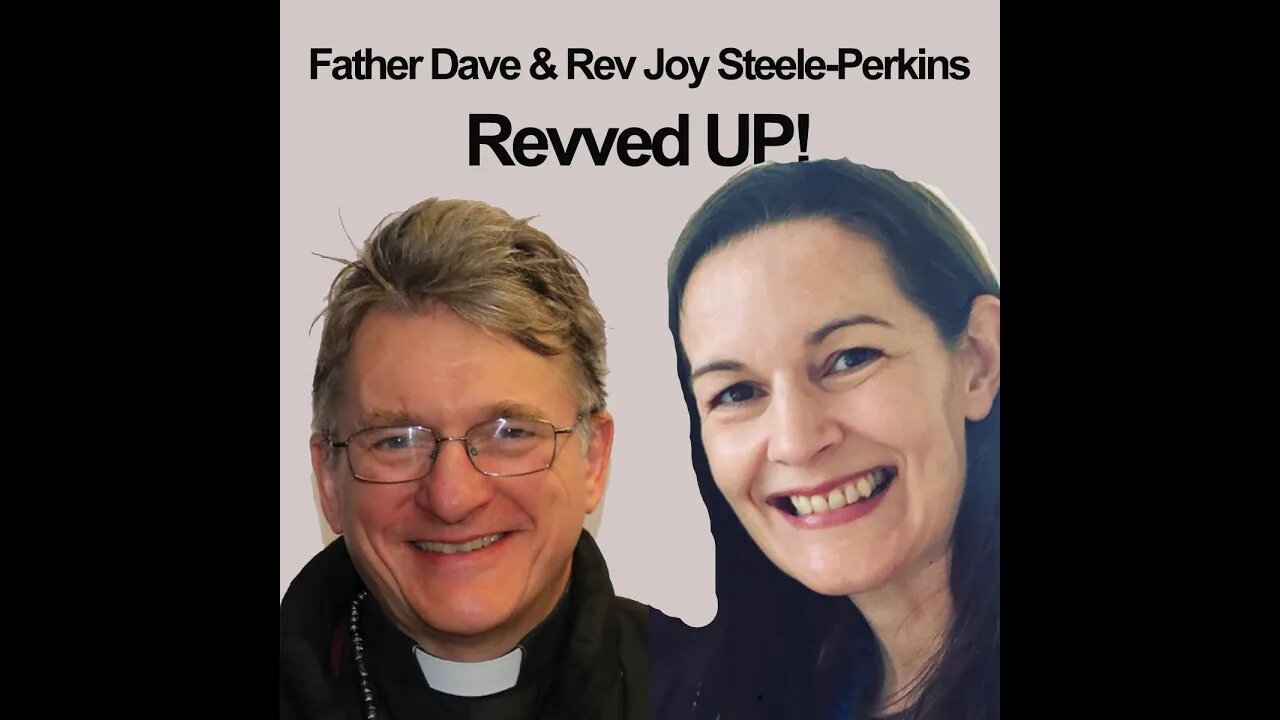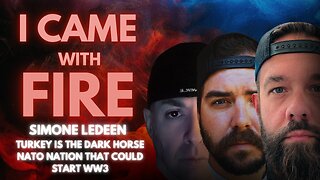Premium Only Content

Revved UP! - August 8, 2021
Our reading from the Hebrew Bible this week (from 2 Samuel 18) continues on with the story of King David, but it is a big chronological leap forward from the last scheduled reading. Last week we had Nathan the prophet confronting the king about his adultery with Bathsheba and his murder of her husband. This week deals with the violent death of David's son, Absalom, and David's lament. A lot has happened in between - rape, murder and civil war!
Nathan had warned David that trouble lay ahead for him, but who could have envisaged the scale of it! The horrors start with his son, Amnon, raping his daughter (Amon's half-sister), Tamar, and the king's lackluster reaction. This leads Absalom (Tamar's full brother) to murder Amnon, which leads David to exile Absalom for a short while, but the issue is never properly dealt with. Absalom then goes from subtly white-anting the king's authority to open rebellion, leading David to flee the capital, leaving his son to rape all the king's concubines on the rooftop of the palace!
Surely, this is one of the most sordid chapters in the history of the people of Israel, so perhaps it is understandable that our lectionary leaves it all out. Even so, it is impossible to understand the implications of the death of Absalom without it. While David's lament for his slain son resonates with all of us who are parents, it is just one sad component in a far greater tragedy of bloodshed and violence. How do we reconcile David's tender love for his son with his apparent indifference to the fate of his daughter and to the fate of thousands of his fellow Israelites who die in a war that he could have prevented?
By way of contrast, our reading from St Paul's letter to the Ephesians (4:25-5:2) is all sunshine and light. "Be kind to one another, tenderhearted, forgiving one another, as God in Christ has forgiven you". Enough said!
Our Gospel reading is from John 6 (35, 41-51), and it's a further expansion on Jesus' statement, "I am the bread of life" (John 6:35). Jesus now helps us interpret this initially ambiguous image by grounding it in the story of the wilderness wandering and the 'manna from Heaven' (6:49) that was given to the people to eat.
Clearly, Jesus' feeding miracles and his healings are all part of a larger project - another exodus in fact - leading people out of slavery towards a new and better world. The people are grumbling and confused, as were their forefathers and foremothers before them. They fail to recognise in Jesus a new Moses - the one who embodies their future hope.
Dave
http://www.fatherdave.org
http://www.fighting-fathers.com
-
 1:11:40
1:11:40
Michael Franzese
2 hours agoWhat's the deal with Tate brothers?
27.1K20 -
 17:54
17:54
The Rubin Report
3 hours agoTechnology Utopia or Dystopia? Eric Weinstein, Laila Mickelwait & James Poulos
24.8K24 -
 1:12:29
1:12:29
Mike Rowe
2 days agoWHY Is America The Biggest Lumber Importer In The World? | Mike Albrecht #428 | The Way I Heard It
39.7K39 -
 1:19:23
1:19:23
Steve-O's Wild Ride! Podcast
2 days ago $7.09 earnedMrBallen Blows Steve-O's Mind With Insane Stories - Wild Ride #254
32.4K15 -
 2:27:21
2:27:21
I_Came_With_Fire_Podcast
13 hours agoTURKEY is the DARK HORSE NATO Nation That Could START WW3
37.6K7 -
 2:13:40
2:13:40
Rotella Games
23 hours agoFamily Friendly Saturday Morning Fortnite
21.3K -
 LIVE
LIVE
Major League Fishing
2 days agoLIVE Tackle Warehouse Invitationals, Stop 2, Day 2
322 watching -
 4:59:34
4:59:34
SoundBoardLord
7 hours ago90's Cartoons, Chill Vibes, Good Conversations!
23.1K2 -
 9:52
9:52
Talk Nerdy Sports - The Ultimate Sports Betting Podcast
4 hours agoEpisode 3/15/25 - Sportsbooks Won Last Night. Not Tonight. No more excuses. No more heartbreaks!
31.5K2 -
 15:17
15:17
Shea Whitney
1 day ago $6.03 earnedI Used CASTOR OIL for 30 Days and THIS Happened!!!
33.6K27